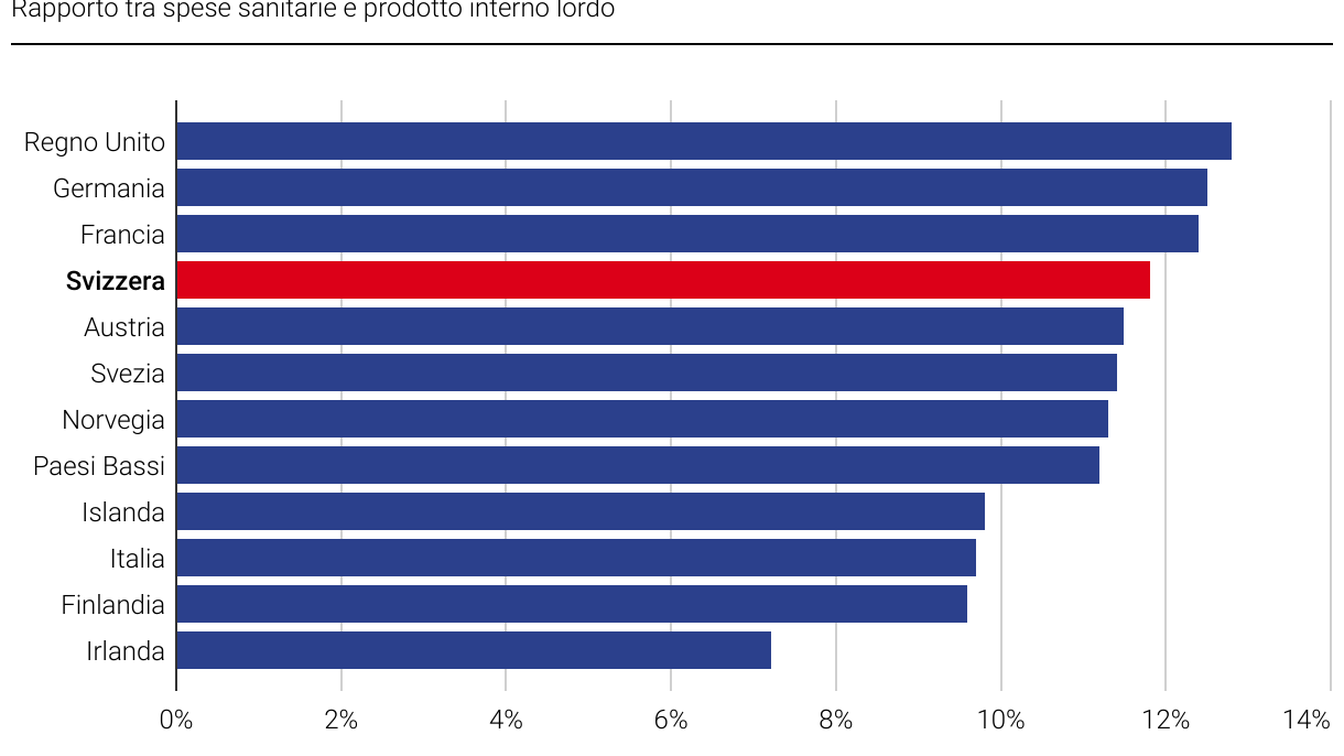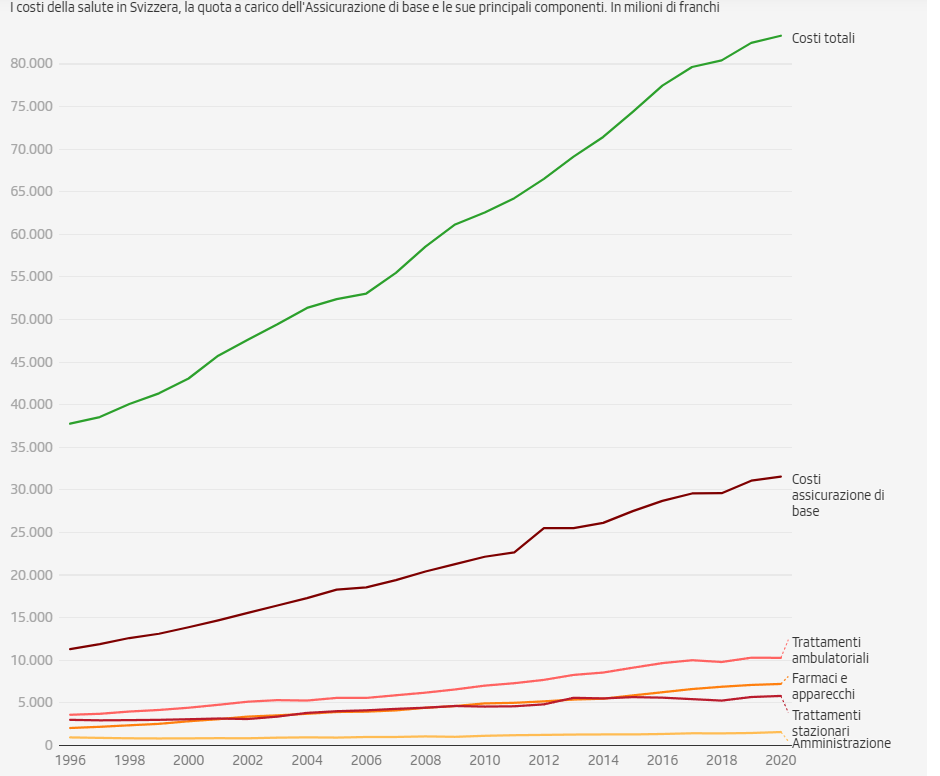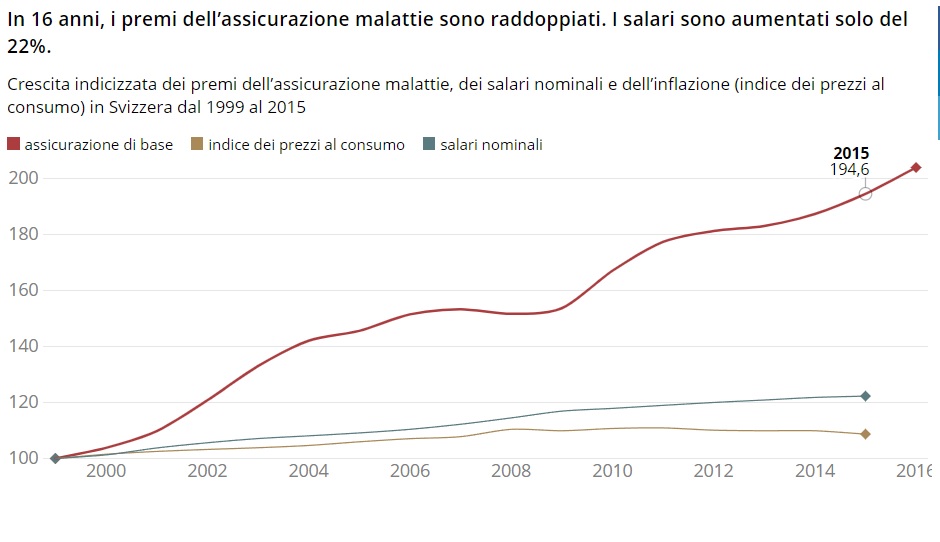Healthcare in Switzerland: healthcare contributions have increased by 40% in 11 years…

How about +40% health contributions in 11 years? This is the situation that Swiss citizens find themselves experiencing in order to support their healthcare system.
How does healthcare work in the Federation?
The Swiss healthcare system is a hybrid between state control and free competition. Private health insurance companies operate in a highly regulated market, while service providers such as doctors and hospitals are both private and state-owned. Furthermore, the cantons have responsibility for healthcare, but some issues are regulated by national laws. This fragmented and complex structure contributes to making the Swiss healthcare system one of the most expensive in the world.
The country enjoys a widespread coverage of doctors and hospitals throughout the territory. Unlike some state healthcare systems, such as the British or Italian ones, Swiss patients do not face long waiting lists or have to wait months for a doctor's appointment.
An important aspect of the Swiss system is that all residents are obliged to take out basic health insurance and pay monthly premiums to the health insurance company of their choice. This competition between insurance companies is influenced by the region of residence, with premiums that can vary depending on the canton in which you live. For those who find it difficult to meet the costs, premium reductions can be requested. Health insurance companies are required to provide basic insurance to everyone, regardless of health or age. However, regarding supplementary insurance, they can reject affiliation requests.
Swiss patients are required to contribute a minimum amount of 300 francs to the costs of healthcare. They also have the possibility of choosing a higher deductible, of the order of a few thousand francs, thus reducing insurance premiums. However, those who opt for the deductible must pay out-of-pocket for medical and pharmaceutical costs up to this amount. Only after this amount are the costs covered by the health insurance.
Additionally, patients must participate in the payment of medical and healthcare bills at a rate ranging from 10% to 20% for some drugs. In case of hospitalization, a daily ticket is paid.
The problem is that Swiss healthcare spending remains high compared to GDP
And, above all, the growth in healthcare costs has been very strong.
An abnormal growth in contributions
As Die WeltWoche reports, however, the public-private system has a big, enormous problem: it provides very little incentive to contain costs, precisely because citizen participation in spending is strong, and individual citizens willingly open their wallets when it comes to their own skin.
President Berset last month announced his latest health insurance premium increase for the following year, equal to 8.7% for 2024, well above the inflation recorded in 2023 which, at its peak , was 3.4% in Switzerland.
In the eleven years of Berset's mandate, insurance costs increased by 40%, a jump of 24 billion francs to 86 billion francs. The latest price increase affects all those who pay health insurance premiums and cantonal and federal taxes. Anyone whose premiums are paid entirely or mostly by the state is completely or mostly off the hook.
The choice not to exempt any company or individual from the increase in contributions comes as a severe blow to the Swiss middle class, but the government that voted for the law is social democratic based and you know the profound hostility of social democracy, or of the its aggregates, for the middle class.
If we analyze a horizon from 2000 to 2016 the premiums had already doubled, at this point the growth is even higher
The problem is that services do not have the increase in productivity of the manufacturing sector, except for profound and epochal changes which, however, have not affected the healthcare sector, which is still extremely linked to the human presence, i.e. "Labour intensive". Even in Switzerland, if they want to maintain this level of service, they will have to move to "Capital intensive" innovations, but the perspective seems to be that of "Cut".

Thanks to our Telegram channel you can stay updated on the publication of new Economic Scenarios articles.
The article Healthcare in Switzerland: healthcare contributions have increased by 40% in 11 years… comes from Economic Scenarios .
This is a machine translation of a post published on Scenari Economici at the URL https://scenarieconomici.it/sanita-in-svizzera-i-contributi-sanitari-sono-aumentati-del-40-in-11-anni/ on Fri, 06 Oct 2023 10:05:59 +0000.



